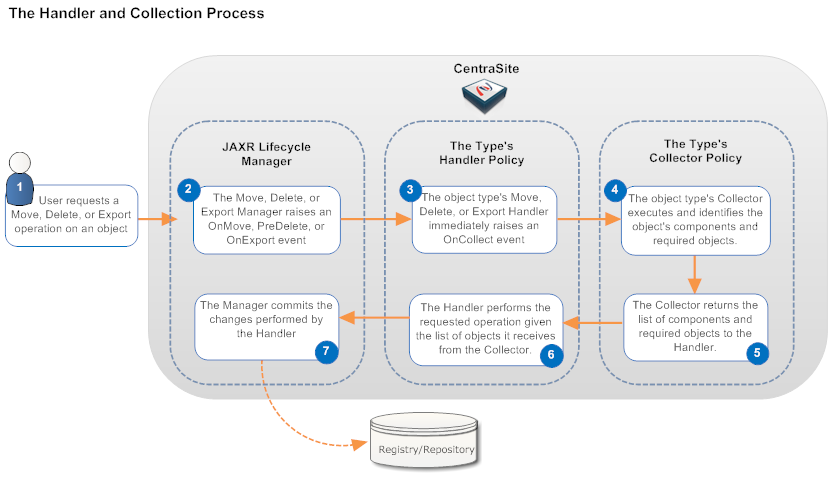
Policy Name | Description |
Collector Policy For BPEL Process | Performs the collection process for BPEL Process objects. For a list of the components that this collector returns, see the BPEL Process component list. |
Collector Policy for OData Service | Performs the collection process for OData Service objects. For a list of the components that this collector returns, see the OData Service component list. |
Collector Policy For Process | Performs the collection process for Process objects. For a list of the components that this collector returns, see the Process component list. |
Collector Policy for REST Service | Performs the collection process for REST Service objects. For a list of the components that this collector returns, see the XML/REST Service component list. |
Collector Policy for Schema | Performs the collection process for XML Schema objects. For a list of the components that this collector returns, see the XML Schema component list. |
Collector Policy for Virtual OData Service | Performs the collection process for Virtual OData Service objects. For a list of the components that this collector returns, see the Virtual OData Service component list. |
Collector Policy for Virtual REST Service | Performs the collection process for Virtual REST Service objects. For a list of the components that this collector returns, see the Virtual XML/REST Service component list. |
Collector Policy for Virtual Service | Performs the collection process for Virtual Service objects. For a list of the components that this collector returns, see the Virtual Service component list. |
Collector Policy for Virtual XML Service | Performs the collection process for Virtual XML Service objects. For a list of the components that this collector returns, see the Virtual XML/REST Service component list. |
Collector Policy for Web Service | Performs the collection process for Service objects. For a list of the components that this collector returns, see the Service component list. |
Collector Policy for WS-Policy | Performs the collection process for WS-Policy objects. For a list of the components that this collector returns, see the WS-Policy component list. |
Collector Policy for XML Service | Performs the collection process for XML Service objects. For a list of the components that this collector returns, see the XML/REST Service component list. |
Collector Policy for IS Service Interface | Performs the collection process for Integration Server (IS) Service Interface objects. For a list of the components that this collector returns, see the IS Service Interface component list. |
Virtual Service Export Handler | Performs the export process for Virtual Service objects. |
Policy Name | Description |
Asset Type Export Handler | Performs the export process for asset type definitions. |
Collector Policy For Lifecycle Model | Performs the collection process for lifecycle models. |
Collector Policy For Policy | Performs the collection process for Policy objects. |
Default User Move Handler | Performs the move operation on users. |
Taxonomy and Category Export Handler | Performs the export process for taxonomies and their categories. |